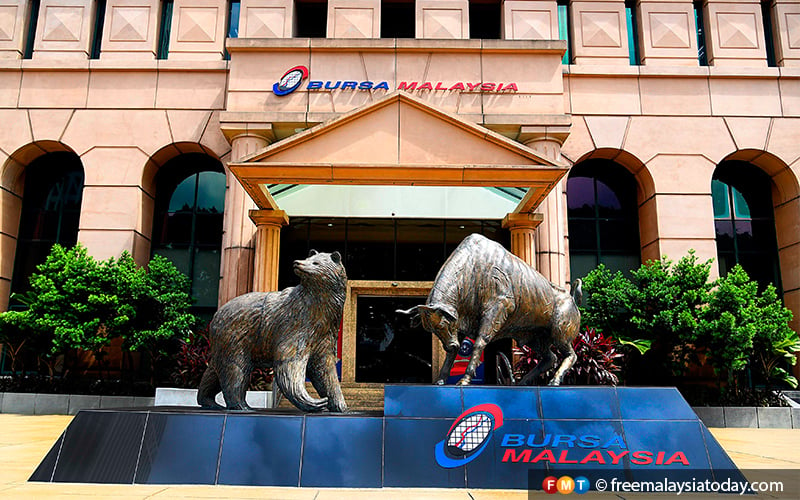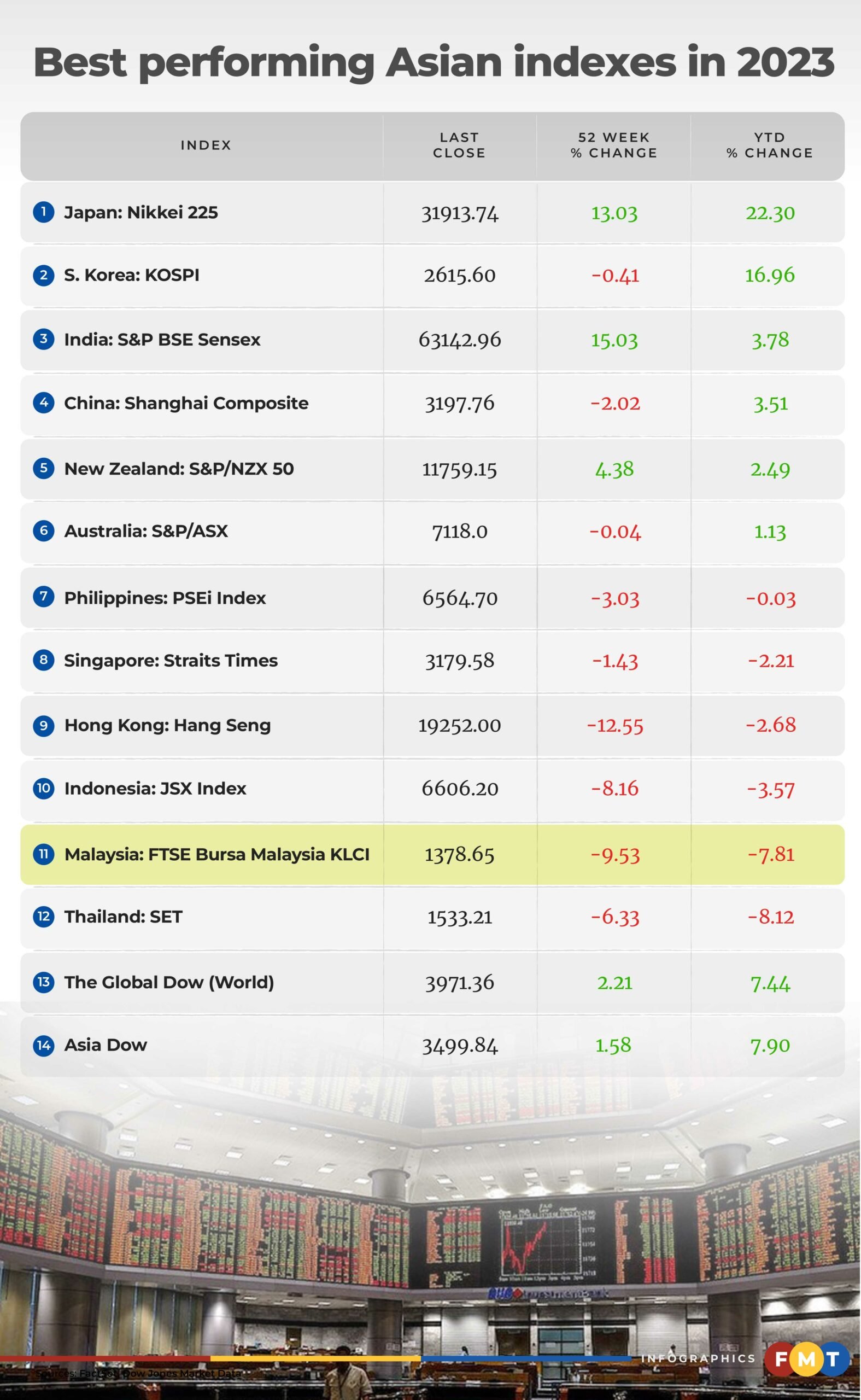
KUALA LUMPUR: The last time the FTSE Bursa Malaysia KLCI (FBM KLCI) was within touching distance of 1,900 points was five years ago. Since then, it has tumbled 27% or 509 points to 1,378.65 points at the close yesterday from its five-year high of 1887.75 in April 2018, just prior to the 14th general election.
To say that Bursa Malaysia is a laggard among its regional peers would be a gross understatement. The FBM KLCI is one of the worst performing benchmark indices in Asia, down 8% year-to-date.
Asked about the state of affairs afflicting the local bourse, Bursa Malaysia CEO Muhamad Umar Swift highlighted the low profitability of Malaysian public-listed companies (PLCs).
“Malaysian corporations have not been that attractive from a profit perspective.

“Investors who invest in companies are looking for growth, fundamentally either in the share price, profit or dividend,” said the 58-year-old Australian, who was appointed CEO in February 2019.
Pressed by FMT Business on why the KLCI was underperforming, Umar said: “You are fixated. You should be looking at what the economy is doing. It’s all about companies’ profit.”
Umar appeared to concur with the recent statement by economy minister Rafizi Ramli that the local market has lost its lustre compared to its regional counterparts.
“If you look at what (Rafizi) shared on the weekend about the future (of Bursa Malaysia), it’s not very good,” he said after attending the listing of Edelteq Holdings Bhd on the ACE Market yesterday.
In a stinging assessment of Bursa Malaysia last Saturday, Rafizi said the stocks that dominate the local bourse reflect the country’s “past economic successes” rather than a promise of an exciting future for investors.
He said the reason for the local markets lagging behind was due to the absence of proper structural reforms, such as resource allocation to high-value and high-growth sectors as well as fiscal consolidation.
These structural reforms were crucial for companies listed on Bursa Malaysia to be able to benefit from where the money was flowing and to bring back investors in the long-term, he said.
However, Umar did not address the issue of structural reforms as raised by Rafizi.

Unrelenting selling by foreigners
MIDF Research said this week that foreign investors had been scurrying away from Bursa Malaysia in 16 of the last 22 weeks, with a net outflow totalling RM2.96 billion.
Asked what the exchange was doing to reverse this, Umar said “capital is always seeking profit.”
“They have gone risk off from emerging markets and back to the US. Everyone is looking at what the US Federal Reserve (Fed) is going to do. If the Fed goes dovish, you’ll see flows back to our region.”
He also noted that Malaysia is a low beta (low risk) market, and that businesses needed to be “bolder, and taking more risks”.
Businesses also need to understand the importance of the Public Listed Companies Transformation (PLCT) programme, he pointed out.
Announced in March 2022, the PLCT is Bursa’s attempt at restoring the “attractiveness and investability” of listed companies. It is done through online webinars, guide books and a digital dashboard, supporting companies in their transformation journey.
“So, if you look at the narrative around the PLCT programme, keeping up is no longer good enough, (PLCs) need to excel, to step up.
“Not only to delight the customer, but in delighting your customer, you are also delighting the investor,” Umar said.
However, given Rafizi’s no holds barred comments about the shortcomings of Bursa Malaysia, it appears this transformation programme that Umar is touting has a lot of catching up to do.
Bursa Malaysia’s recently concluded reporting season for the first quarter of the calendar year (CY2023) was hardly encouraging.
The aggregate reported earnings of the FBM KLCI component stocks for the first quarter came in at RM15.8 billion, slumping sequentially at 34.7% quarter-on-quarter (q-o-q) but edging up marginally by 3% against the corresponding quarter last year.
Only time will tell if a future uptick in profitability of Malaysian companies can be the panacea for our beleaguered stock market. - FMT



No comments:
Post a Comment
Note: Only a member of this blog may post a comment.